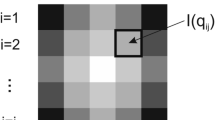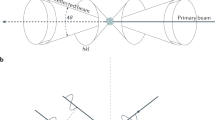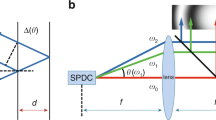Abstract
IN the 'absolute measurements' of X-ray intensities of reflexions from a crystal, a measurement must be made of the monochromatic radiation incident upon the crystal in one second1, which, though it can be done fairly conveniently by the ionization chamber method2, requires a complicated design of apparatus in the use of the rotation photographic method. I have considered the problem in the light of a new synthesis of X-ray data3 and found that the absolute values of |F (h)| 2 may be deduced to a close approximation from the relative intensity data without any further experimental work. The derivation of the equations needed in this deduction in the case of a linear crystal is shown below.
This is a preview of subscription content, access via your institution
Access options
Subscribe to this journal
Receive 51 print issues and online access
$199.00 per year
only $3.90 per issue
Buy this article
- Purchase on Springer Link
- Instant access to full article PDF
Prices may be subject to local taxes which are calculated during checkout
Similar content being viewed by others
References
Bragg, W. L., "The Crystalline State", 1, 219.
Compton, A. H., Phys. Rev., 9, 29 (1917).
Yü, NATURE, 149, 638 (1942).
Author information
Authors and Affiliations
Rights and permissions
About this article
Cite this article
YÜ, S. Determination of Absolute from Relative X-Ray Intensity Data. Nature 150, 151–152 (1942). https://doi.org/10.1038/150151b0
Issue Date:
DOI: https://doi.org/10.1038/150151b0
This article is cited by
Comments
By submitting a comment you agree to abide by our Terms and Community Guidelines. If you find something abusive or that does not comply with our terms or guidelines please flag it as inappropriate.



